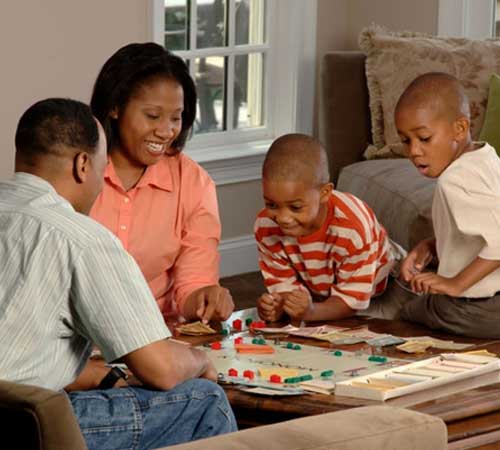
The benefits of setting parenting goals with your partner range from having a less frustrating and more rewarding parenting experience to providing a balanced family system that is essential for the healthy development of your kids.
This article looks into the best practices you can adopt to help you set smart and realistic parenting goals with your partner:
1. Have It On Paper
Some say “it’s not really a goal until you put it on paper”, I say “do not underestimate the power of writing your goals down on paper (or an e-notepad)”.
After you and your partner have agreed to establish your own family goals, do the next best thing which is putting all valid points down on paper. Unwritten goals will most likely be forgotten or not considered as important. Written goals, on the other hand, sticks as a constant reminder of what you are working towards.
2. Have It In The Present Tense
It helps to write down your goals as if it was any other habit of yours; as though you’re already doing it. It may sound silly at first, but your brain cannot tell the difference and as soon as you can get your brain on board, your actions and feelings will follow. Besides, the most effective parenting goals list are the ones that reflect what you are both going to do differently, rather than what you want to stop doing. “I speak calmly to my kids; I respond, not react,” rather than “I want to stop raising my voice on my kids.
3. Outline All The Steps
Another important step in setting parenting goals that work is outlining small steps (all the steps) you need to take that will make this goal a reality in real-time. Viewing your goals in minute steps will help you stay on track as it is much less intimidating to achieve and will have your body releasing endorphins (happy hormones) as you complete each small task,
4. Put A Timeline On It
After you and your partner have agreed on a set of parenting goals for your family, you want to ensure that each of those beautiful goals has a timeline on them; like a set date, you would like to complete each goal or a specific time of day you are going to implement a particular goal. For example, “I want to teach my children my local dialect in two years.” You can jump on fixing the timelines right after the goals are set or you can take a break and do it the next day.
5. Accept That You And Your Partner’s Perspectives May Differ
It would be near impossible that the two of you share the very same views on all issues.
On some issues, there are bound to be opposing points of view. When this happens, as long as the communication is respectful, try not to take it as a personal affront. Both of you may have valid, just different, perspectives. Make it a point of duty to always give feedback and constructive criticism to one another in a healthy and supportive way. Nobody is saying that you do not need to agree with your co-parent in their approach or ideas, but as parenting partners, you do need to listen to each other’s point of view.
Remember, the goal is to come together and decide how you want to raise your children in the best ways possible.
RELATED: 6 Important discussions to have with your husband today
6. Focus On Solutions
You will find much more gain in looking onto the bright side rather than finding faults and someone to blame. Convince yourself that there is some legitimate reason for almost every behavior.
Instead of saying: “It is your fault that this or that happened,” you can instead say: “This is not about anyone being at fault. The focus should be on how we are going to handle it.”
7. Be Assertive, Not Aggressive.
Instead of making statements like: “If you don’t talk to me about this now, I’m doing it my way, end of topic!” you can say instead: “I get that you feel strongly about this. I do too, but we need to discuss this in order to smoothen it out.”
8. Avoid Lecturing.
To tone down defensiveness in your partner, do your best to stay calm and objective and communicate your feelings in a familiar conversational, non-judgmental way.
Instead of expressing: “You always over-react to things” and going on and on about how much you appreciate or do not approve of it, you can instead say: “When Joshua didn’t finish his food, you seemed to get very upset and angry.” Set the tone for a safe conversation, not an argument.
9. Work As A Team
Work as a team. Support one another and respect each other’s needs, beliefs, temperaments, and efforts.
If either of you wants to try a new approach, first run it by your partner for advice or support. Also, avoid dodging responsibility when a problem arises. Deal with issues as they occur. Don’t interfere with a situation the other person is handling. If you do not agree with their mode of discipline, wait until after they are done and then express your feelings away from the eyes and ears of the children, in a temperate tone.
Also, set a regular time to discuss what has been going on and review how your goals have been coming along so far, and what to adjust or do differently if need be.
10. Celebrate Success
There are only so many jobs in the world harder than that of raising another person(s). That said, do well to note that one bad day doesn’t mean you won’t reach your goal or that you guys are bad at parenting. You’re not perfect, no one is; so, don’t strive for perfection. Focus instead, on getting back on track when you mess up.
Ensure you and your partner celebrate the little milestones reach on your parenting goals journey. Give yourselves a pat on the back, put a gold star on the calendar, or anything else you both like to do.
Find more parenting resource here.



